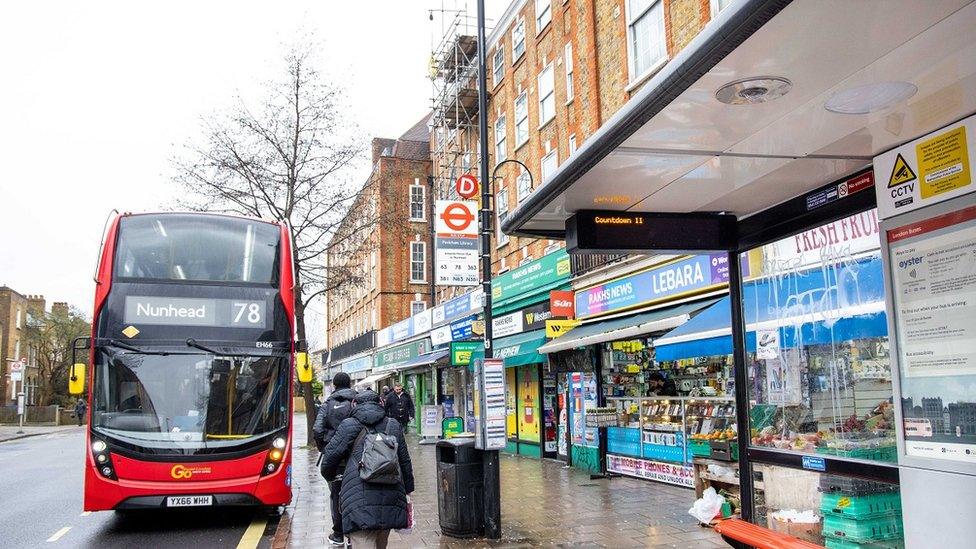London mayor elections: Disabled voters describe their priorities
- Published
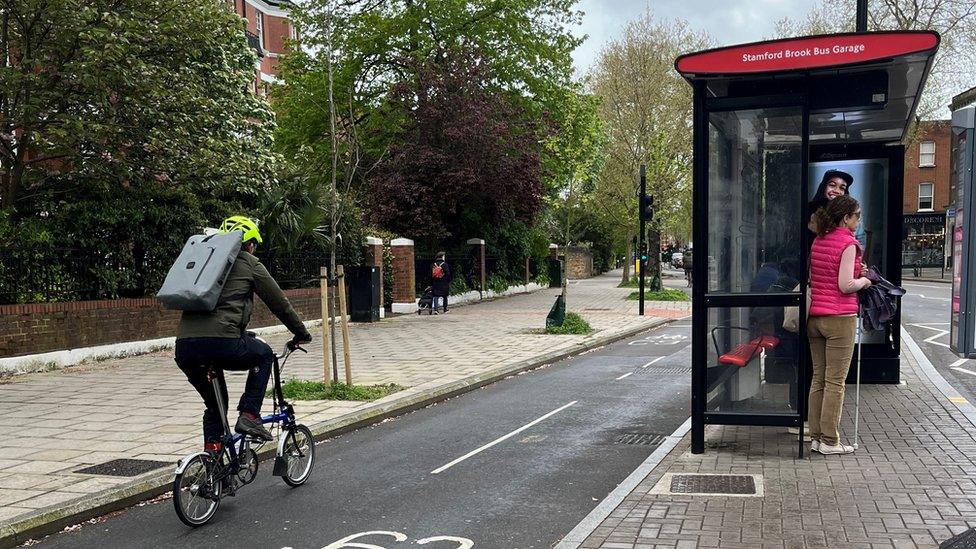
Kasia says she avoids using floating bus stops - there are around 150 of them around the capital
Having to crawl up five flights of stairs because the lift is broken, avoiding certain areas as floating bus stops make crossing the cycle lanes too dangerous or living close to a Tube station but being unable to use it as there's no wheelchair access.
This is a daily reality for the 1.4m disabled Londoners. They are a significant part of the potential electorate and one that will be paying close attention to what the candidates are promising to deliver.
I spoke to a campaigner and resident to find out some of their key priorities in the upcoming London mayoral elections.
Kasia avoids catching the bus these days because she says so-called floating bus stops installed on Chiswick High Road have made it too risky for her to get around alone.
"It's just limited my independence completely… I don't come to Chiswick anymore, because those floating bus stops are dangerous," she said.
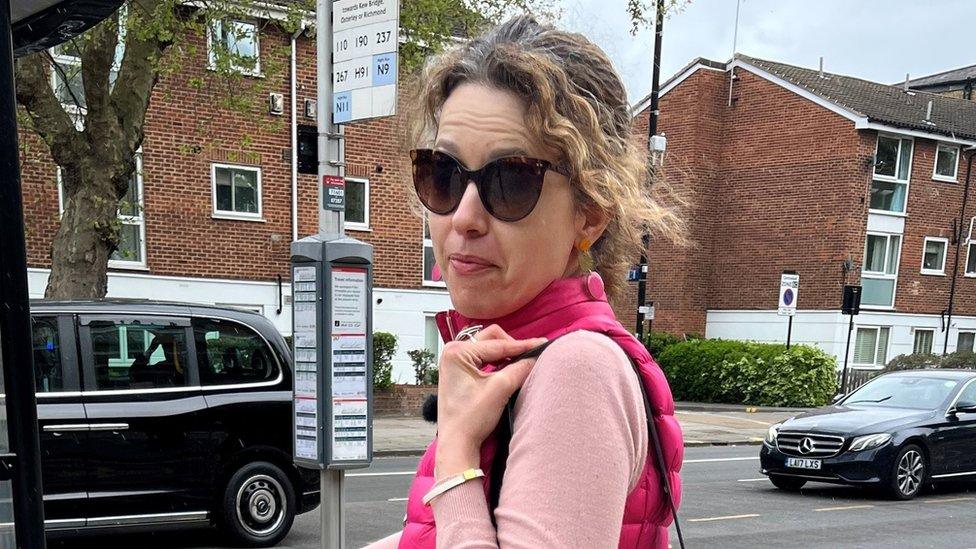
Kasia avoids Chiswick now because of the floating bus stops which she says are dangerous
Kasia is partially sighted and is one of the capital's disabled residents for whom issues like safer roads and accessible transport could influence the way she votes next week.
Being partially sighted she struggles to see traffic.
She used to feel confident to visit her local high street alone, until Transport for London (TfL) installed floating bus stops or bus stop bypasses, as TfL calls them, where a cycle lane is placed between the pavement and the bus stop to improve safety for cyclists.
So far more than 150 of these bus stops have been installed across London.
But Kasia told me it has made journeys a struggle for blind or partially-sighted Londoners like her.
She said: "In order for me to get off or get on the bus, I have to cross the cycle lane which is extremely dangerous and I don't do it."
Near misses between bicycles and vulnerable Londoners have been captured on film by campaigners from the National Federation of the Blind of the UK which has warned of the dangers.
Transport for London (TfL) is expected to publish a review later this year into the safety concerns and the issue has come up in the London mayoral election campaign.
Susan Hall, who is the Conservative mayoral candidate, has described floating bus stops as "absolutely disgraceful" and "nothing but dangerous".
She told me she "would try and take all of them out".
The Labour candidate, Sadiq Khan, said they were installed during his mayoralty because "a disproportionate number of cyclists" had been "injured and killed as a consequence of buses".
He told me that TfL had been following government guidance on floating bus stops, but that it was now doing a review because he understood "the concerns for those who are visually impaired".
Zoe Garbett, the Green Party candidate, said she wanted to see better training for bus drivers when she spoke about the issue at the Inclusion London hustings earlier this month; while the Liberal Democrat candidate, Rob Blackie, said he would carry out a review "to ensure they worked for everybody".
Kasia said she wanted all the candidates vying to be Mayor of London to act quickly and said that the issue would "absolutely" influence her vote.
Access to lifts and toilets on public transport are also issues that disabled Londoners have expressed concern about.
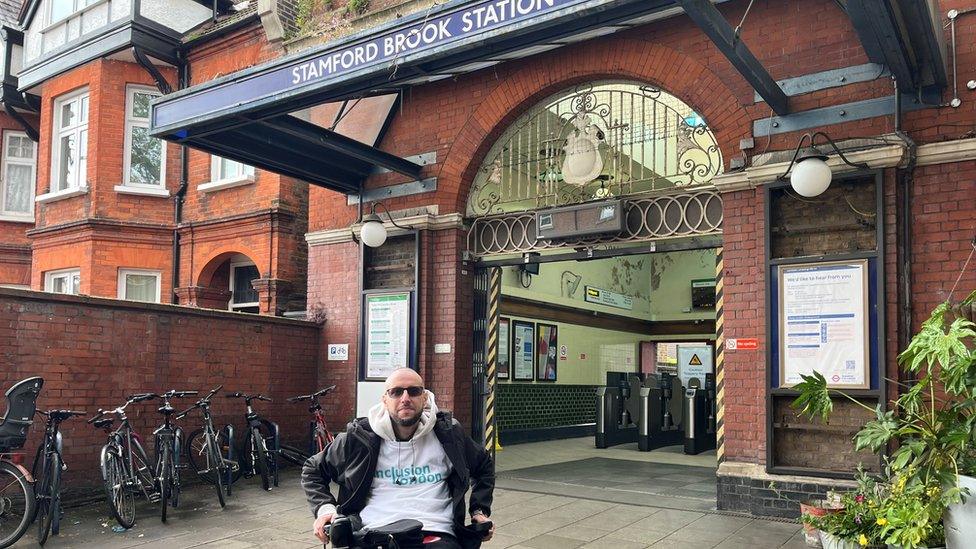
Campaigner Adam Gabsi says all disabled people want is "to be able to travel safely, affordably, the same as everyone else"
Outside Stamford Brook Station I met disability rights campaigner, Adam Gabsi from Inclusion London, which supports deaf and disabled organisations.
Mr Gabsi, who uses a wheelchair, told me all disabled people wanted was "to be able to travel safely, affordably, the same as everyone else".
He added: "We're currently outside of a train station that is not accessible, so travel from here is impossible and I think that's unjust."
Stamford Brook Station is one of the 180 Tube stations across London that does not have step-free access.
But TfL said there were now more than 200 stations across the network that were step-free, including 92 Tube stations, 62 London Overground stations, all the Docklands Light Railway (DLR) and Elizabeth line stations and tram stops.
Mr Gabsi, who criticised some of the main mayoral candidates for not attending the Inclusion London hustings he chaired, said it was not only disabled people who would benefit from having more lifts on the TfL network.
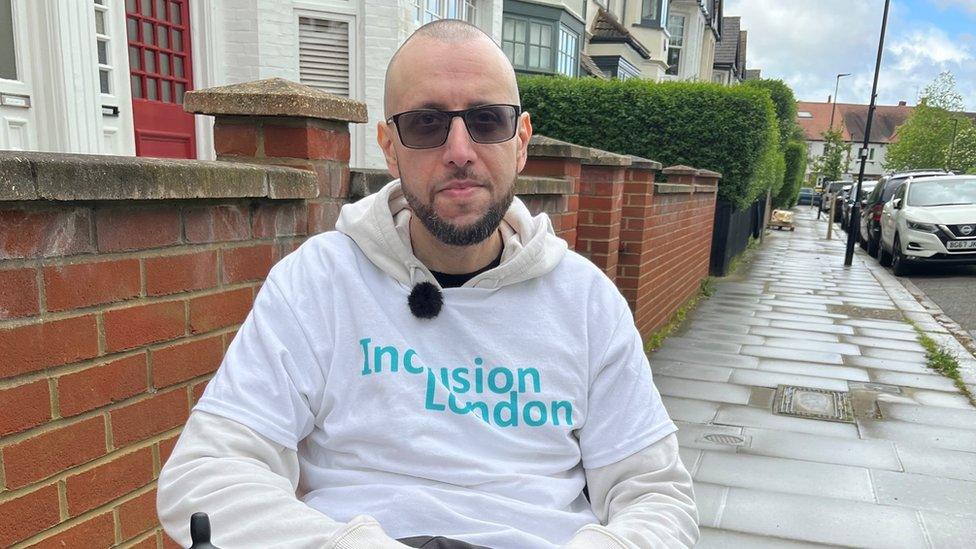
Adam works for Inclusion London which supports deaf and disabled organisations
He said: "It doesn't just benefit disabled people, so we're talking about people that have shopping, buggies, older people. You know it would help everyone if it was more step-free."
Access to public toilets is another area where disability campaigners have said that London's transport network has fallen short.
TfL said there were currently 149 Tube stations that did not offer toilet provision.
Mr Gabsi said a lack of toilets excluded disabled people from society as "disabled people can end up not making their journey if there are no adequate toilets".
There are 13 candidates standing for Mayor of London.
The main candidates have all said they are committed to making more stations step-free and improving toilet provision.
Labour's Sadiq Khan said he would invest at least £3m a year on more public toilets; that he had increased the number of step-free stations since becoming mayor, and if re-elected, would make "half of our tube stations step-free".
Rob Blackie, the Liberal Democrat candidate, has promised to make as many stations as possible step-free and to ensure that "lifts are working properly".
Green candidate, Zoe Garbett, said her party had long been pushing for more public toilets and that she would introduce more of them at bus and train stations, as well as "speeding up" step-free access.
While Conservative candidate, Susan Hall, has promised to improve accessibility and step-free access on public transport.
More 'wheelchair user dwellings' needed
The lack of wheelchair accessible housing available for rent in London is another issue that Inclusion London has called for action on.
They put us in touch with a woman who uses a wheelchair, who described having to crawl up five flights of stairs because the lifts to her flat were broken.
She moved elsewhere, to a ground floor flat, but there she wasn't able to use the toilet at night because of a step to the bathroom.
She told us she wanted a mayor who would ringfence accessible housing for disabled Londoners.
Adam Gabsi said her case was "terrible" and highlighted the need for more housing to be built for wheelchair users.
Under the London Plan at least 10% of new-build homes are supposed to be "wheelchair user dwellings" but Mr Gabsi said that figure, which he considers to be too low, was "not even being achieved" and said the future mayor needed "to really understand and really achieve these targets".
The election takes place on 2 May.

Listen to the best of BBC Radio London on Sounds and follow BBC London on Facebook, external, X, external and Instagram, external. Send your story ideas to hello.bbclondon@bbc.co.uk, external
Related topics
- Published19 February 2024
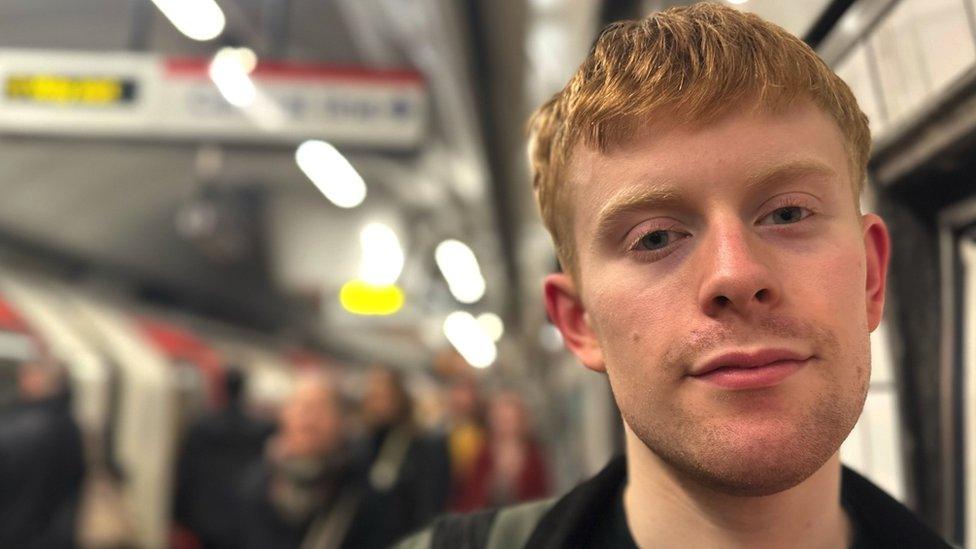
- Published14 March 2024
